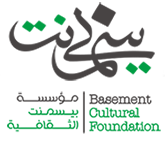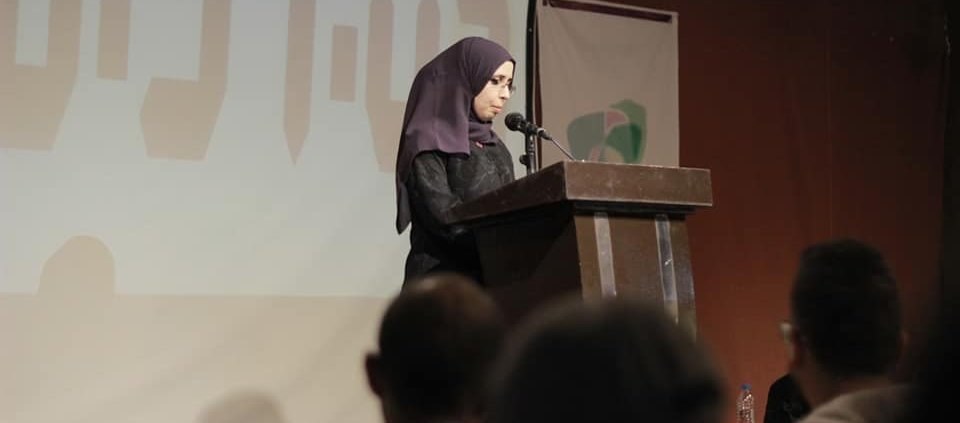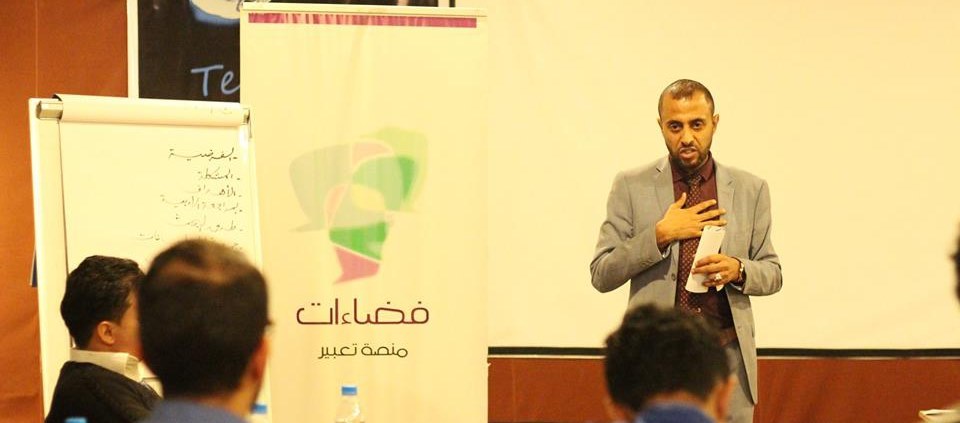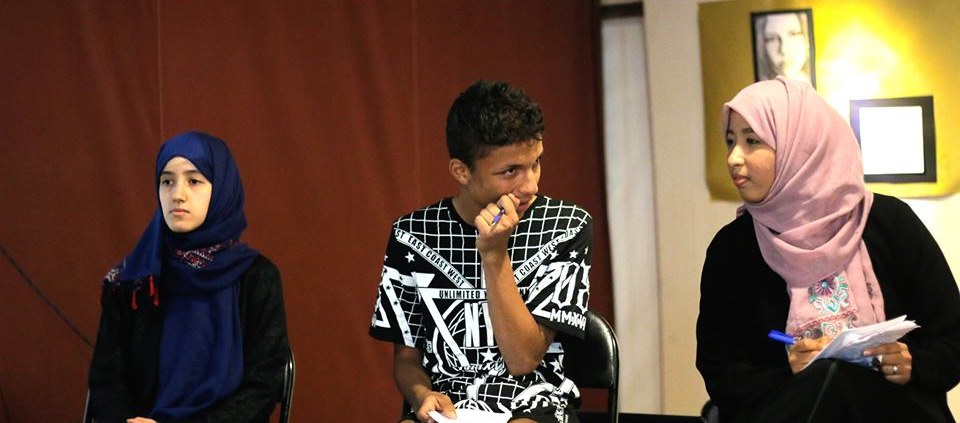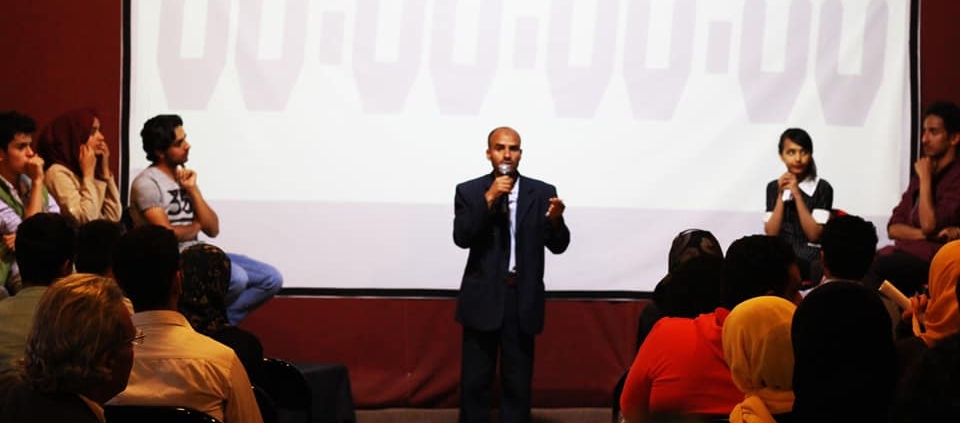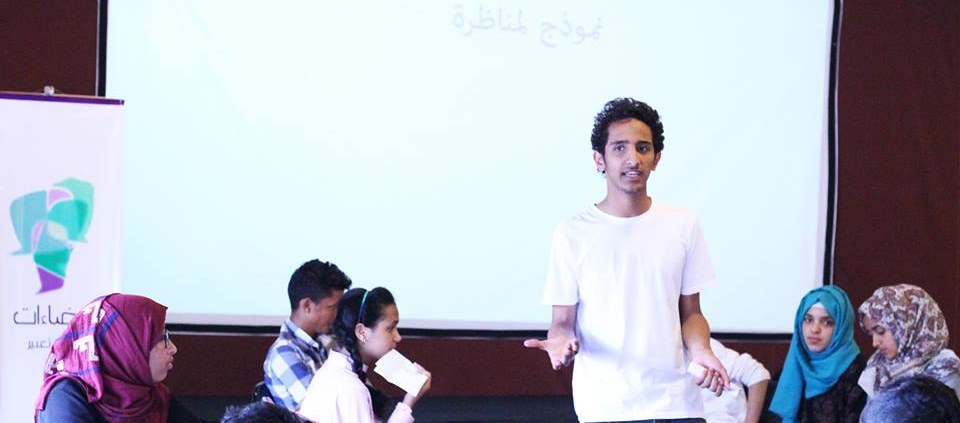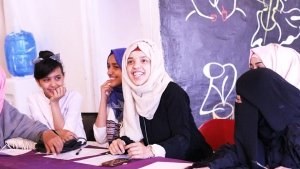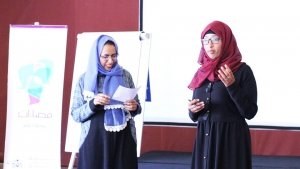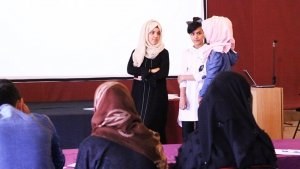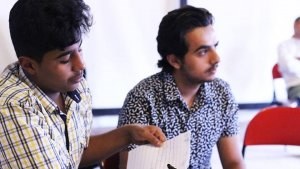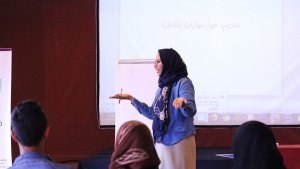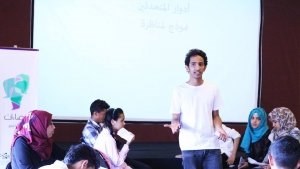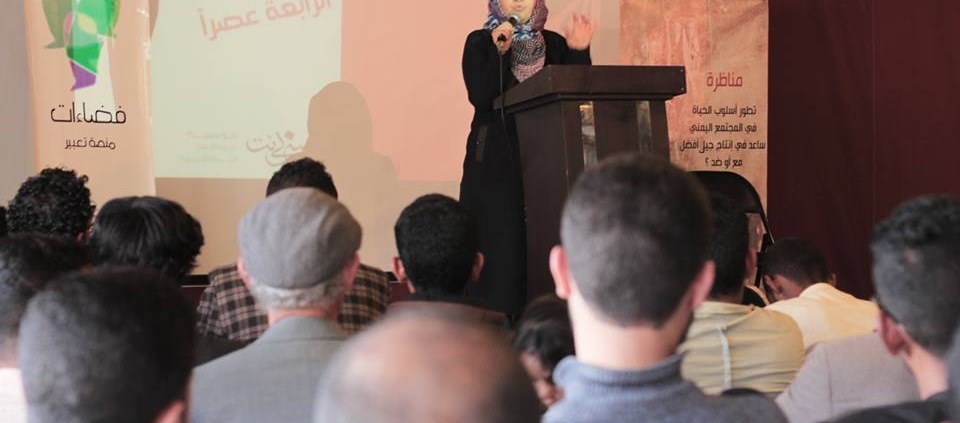On Monday and Tuesday, February 19-20, 2018, Basement organized a training workshop within the Spaces project, in which debates will discuss various issues of interest to the community.The training workshop targeted school students, and participants were selected through participation forms based on their interest in the field of debate, and their participation In debates in schools.
The workshop was attended by 18 participants (8 girls, 10 boys) between the ages of 15 and 20, and exceeded the number that Basemant had previously announced (6 trainees), to train 18 participants to benefit the largest number of target group wishing to acquire this Six of them will be selected to participate in the Basement Cultural Foundation debate in March. Basement has strived to balance the number of male and female participants and has trained them: Jihad Babrik and Shaima Gamal. The training dealt with several axes, the most prominent of which was to provide a general background on the debate (definition, types, benefits, models), and the trainers then touched on the method of debate, and the art of speech, which included the presentation of models of influential speeches throughout history, and discussed the participants on the difficulties that may confuse them During their speeches as stage fright, the uproar that the audience might make, the lack of information. The trainers provided them with assistive techniques to overcome these difficulties. They were applied in the practical exercises that took the most part in the workshop, and the participants were practically trained in preparing the content of the debates (thesis, argument, refutation).
On the second day of the course, the trainers Jihad Babrik and Shaima Gamal completed the course in the field of debate, where the practical application of what the participants learned, and the embodiment of a virtual debate. Shaimaa Gamal presented the participants with the different types of debates and the difference between them, the mechanism of conducting the debate, the distribution of roles between the team, the role of each speaker, the importance of the public and its role in measuring the reaction and the ability of the participants to convince. Shaima pointed out that the method of debate currently followed by the Foundation is the British method, which opens the door for interventions and the right of objection during the talk, and does not adhere to a specific time.
Shaima stressed during the training that the importance of the debate is not to win the majority of the public vote, but to gain participants confidence and the ability to present arguments and persuasion, as the debate as it gives the speaker the ability to intellectual criticism, and gain a lot of skills in his public life. The participants then presented practical debate in which they talked about issues of interest to them, which were commented by the trainers Jihad and Shaima, and gave the participants feedback for improvement in performance and presentation of data.
The researcher and trainer, Mr. Tawfiq al-Jund, participated in a quick intervention in which he spoke to the participants, advising them to put themselves in the other party’s place during the debate. He also advised them to always seek the truth in their lives and reflect on the facts of life. In the last part of the course, participants were given time to prepare for a full-fledged debate based on the information and observations provided to them on the training days, and were distributed in teams supporting and opposing the three selected issues: (Should women have a greater role in society versus men ?, Should young people be given the right to vote? Is education in private schools more efficient than public schools?). The participants proved that despite their young age their ability to talk and persuade and refute arguments, and to inform them of a lot of information and facts, and benefit from what they learned in this session.
Basement will organize a debate next month to bring together the selected youth.

